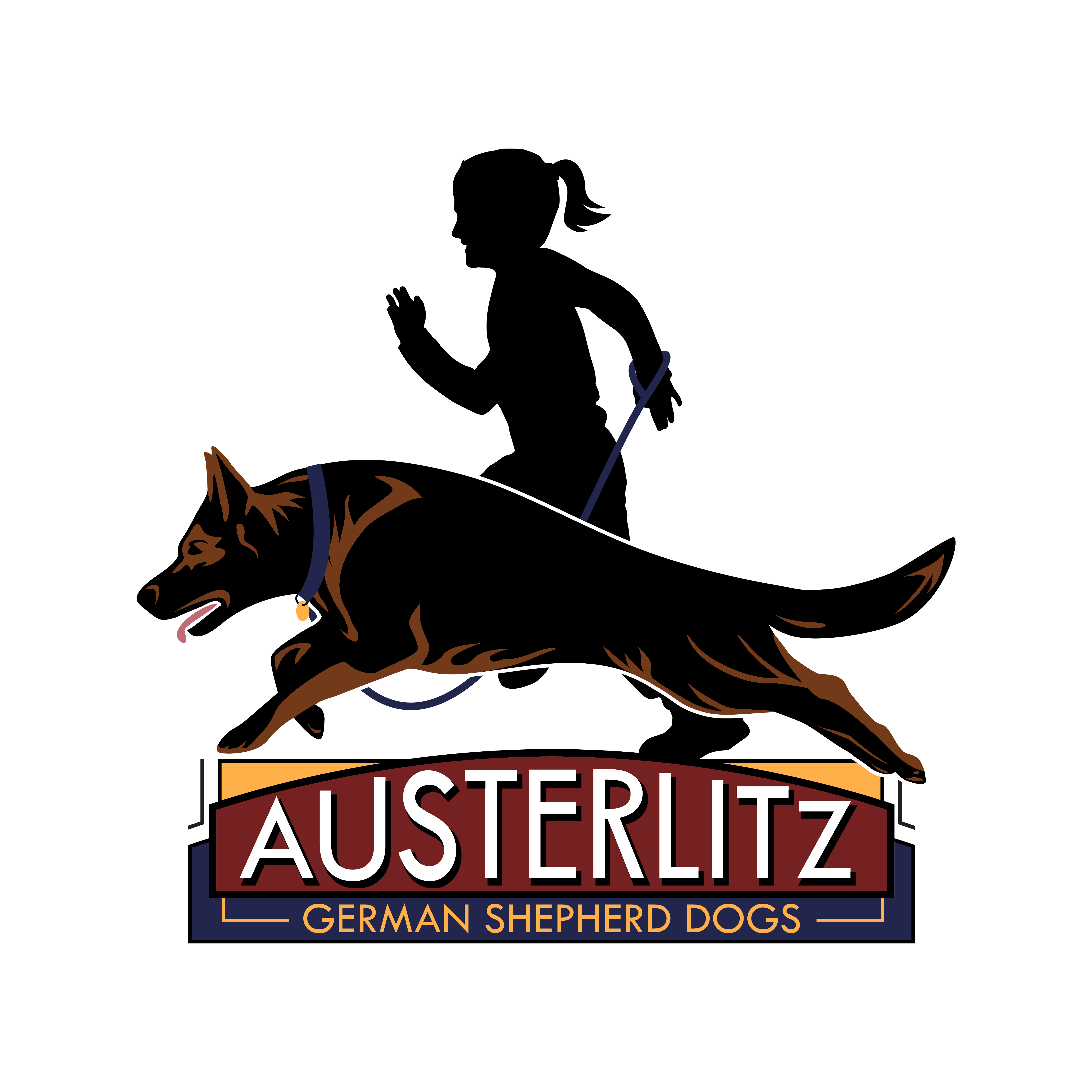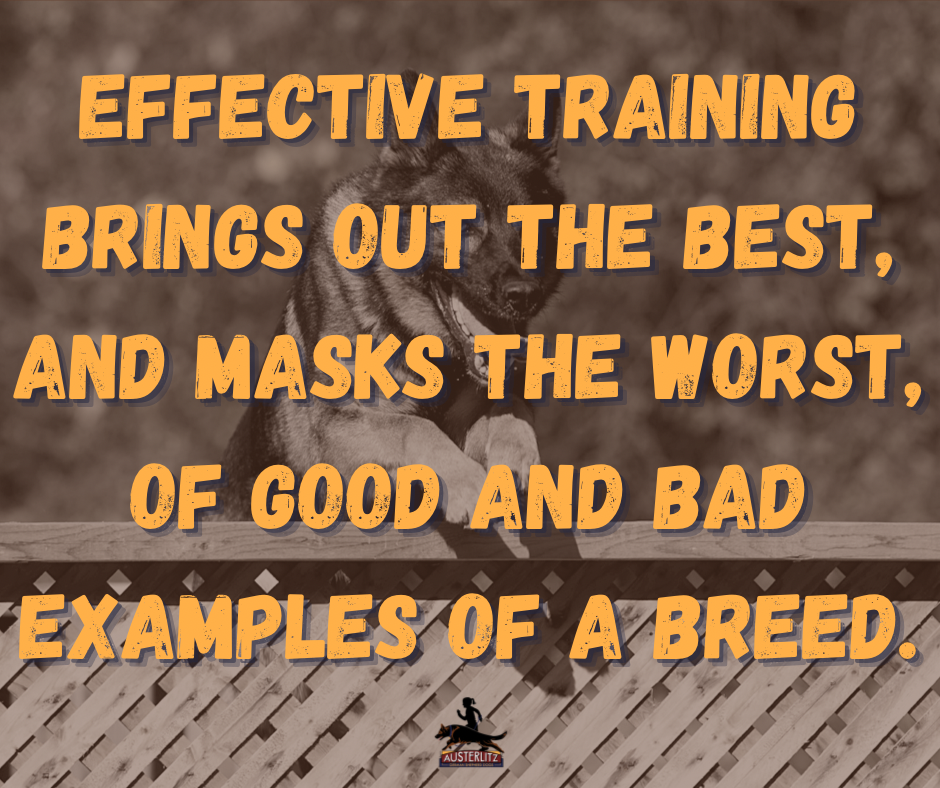As someone who has spent a considerable portion of her life at dog club, training dogs, and observing trained dogs the very idea that training was not a friend of the GSD breeder isn’t something I considered until I decided to take a break from the competitive aspects of the German Shepherd after 25 years of intense involvement.
The non competitive me started to think about and consider ideas that the old me never had time to consider. I recently wrote down some of these thoughts in a Facebook Post.
Additionally, training got better, a LOT better as more and more trainers became skilled in using more modern methods in their training.
And I realized that teasing apart the traits of the dogs, the ones they will pass on to their offspring, from the behaviors their trainer taught them was getting increasingly difficult and further that good training was masking many serious problems of character and temperament in our breed. An additional problem is that many of today’s younger breeders in the USA don’t have skilled mentors, and may be relying on other trainers for their learning of the breed and it’s standard. This rudderless learning leads to an undue influence of those who have very little understanding, or even passion for the breed.
Breeders need to be able to identify when a problem is due to a mismatch of traits with the environment, when they are due to ineffective training, or socialization, and in each case when the problem stems from an undesirable heritable trait. Breeders cannot manage the learning and environment of their puppies once they are in their forever homes, but they CAN manage heritable traits and work hard to produce dogs with traits that both meet the breed standard and meet the standard needs of their clients.
Puppy buyers need to be able to evaluate dogs and not the effect of training on dogs. While watching a great training performance is fun for novices, and inspiring for everyone, it doesn’t help pet dog seekers to predict if those dogs are going to produce the traits they need in a companion. We tell puppy seekers to meet and visit the parents of any puppy they are considering, but often what they meet is a dog under command, who is showing the training and not the native traits of that dog. Puppy seekers need to change their lens and focus on meeting and interacting with dogs who are ”free” of cued or commanded behaviors, free of leashes and collars, and able to show who they are truly. Only then can we expect those visits to have meaning. Puppy seekers need to understand that training skill doesn’t produce genetic traits in dogs, that well trained parents doesn’t equal easy to train puppies, or good companion puppies. In our breed we have so long enabled the competitive trainers, coaches, and handlers to have more influence in our breeding selections than those who actually end up buying and living with our puppies. We assume that ”pet people” will ruin our breed and that breeders selecting for pet friendly traits will enable this ruination. But indeed the opposite is happening, the fads of both the show ring and the trial field are increasing incorrect traits in our breed, from over built, heavy, butt-headed show dogs, to over angulated, hackneyed, trim lines who look for all purposes like a Belgian Shepherd mix, and act the same. The breed left to the wants of competitive voices, with no checks, has never veered so far off course.
What we need in our breed is exactly what the SV has designed in the Breeding Predisposition Test as the original parent club for the breed has recognized that companion and non-sport dogs are actually the backbone of the breed, necessary for it’s preservation, whose needs are equally important to those who love the breed for it’s value in competition. A non sport dog breeding track, free of influence of the sport dog and show dog constituents, where dogs can be evaluated for their adherence to the standard, and correct instincts, character, and temperament instead of the work of a trainer.
For breeders this means we need to value the off field traits of our dogs more, we need to give these ”lifestyle” traits more thought and apply selection pressure more intensely for easy to live with traits over podium friendly traits. Because if we are honest with ourselves, only a small percentage of the puppies we produce will make titles, and even fewer of those will make top sport titles, but they should all live in a loving home, in society at large, and be of benefit there first. This can only happen if we breeders can recognize heritable traits as separate from influenced behaviors.
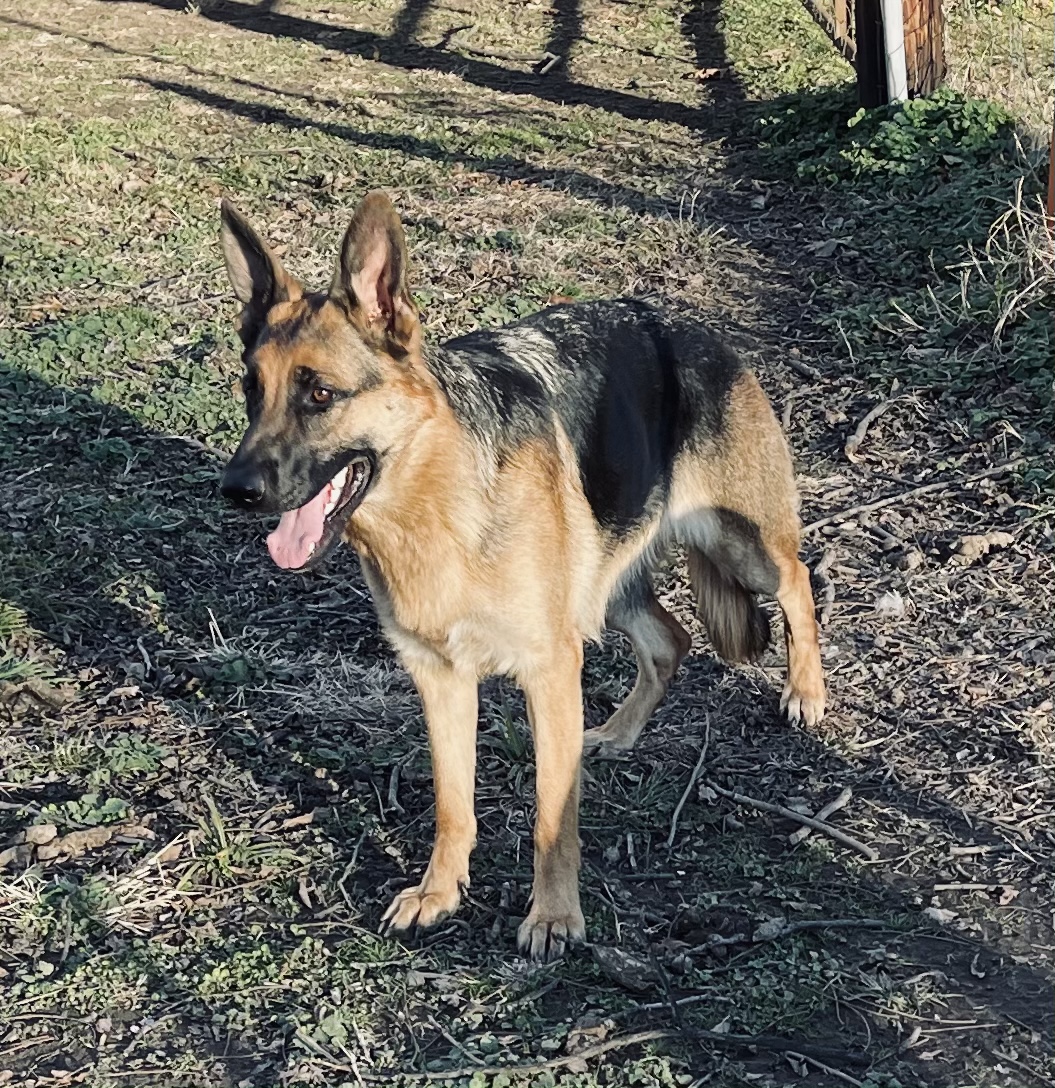
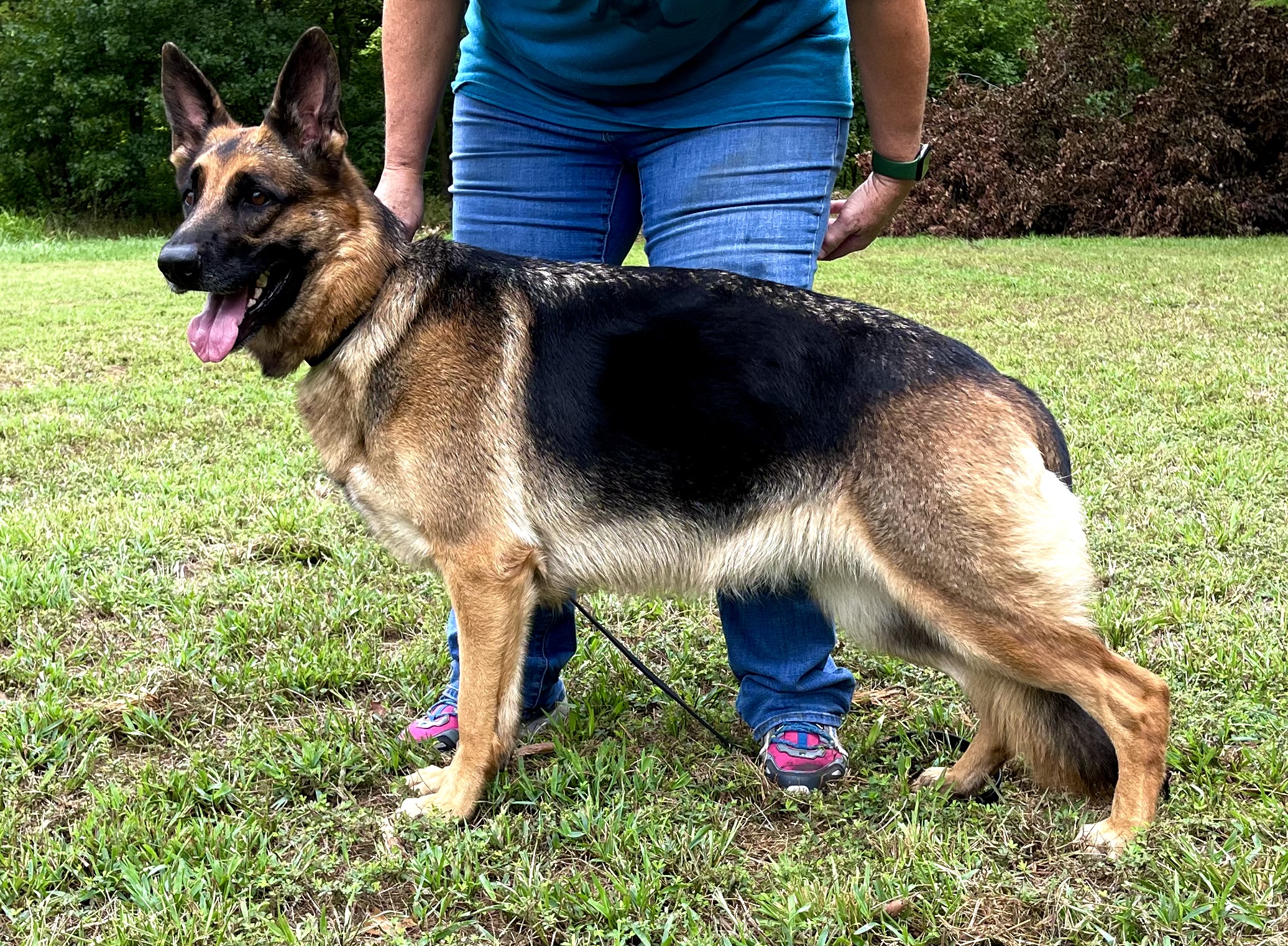
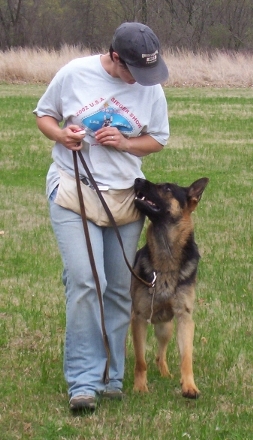
Training is fun! For humans and dogs and gives dogs the skills they need to live in our world.
For breeders the skill lies in looking beyond the effects of training, to the natural dog beneath, and using only those inherit traits in our breeding plans. Working hard to produce dogs that meet the standard for temperament and character as well as meeting the needs of the majority of our puppy buyers, even if the majority are going into companion homes and not working homes.
Producing dogs for working homes that do not exist is not responsible breeding practices nor is it preserving our breed, especially when working traits in style at any given moment may be contradictory to the standard.
